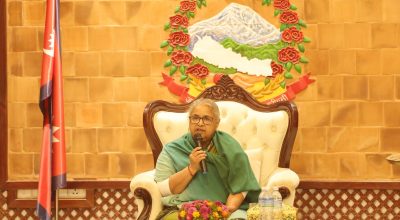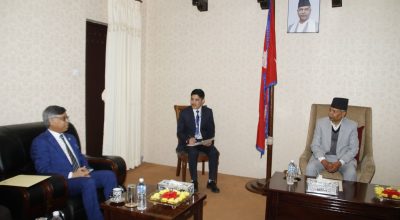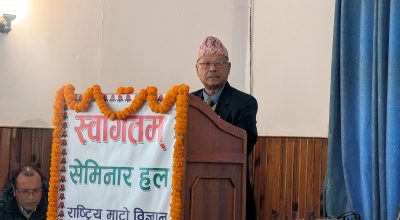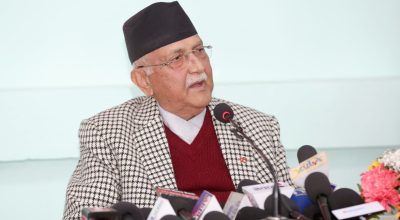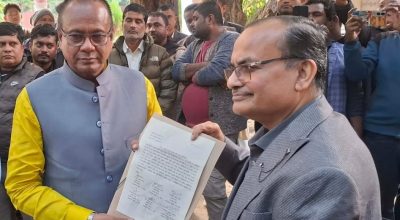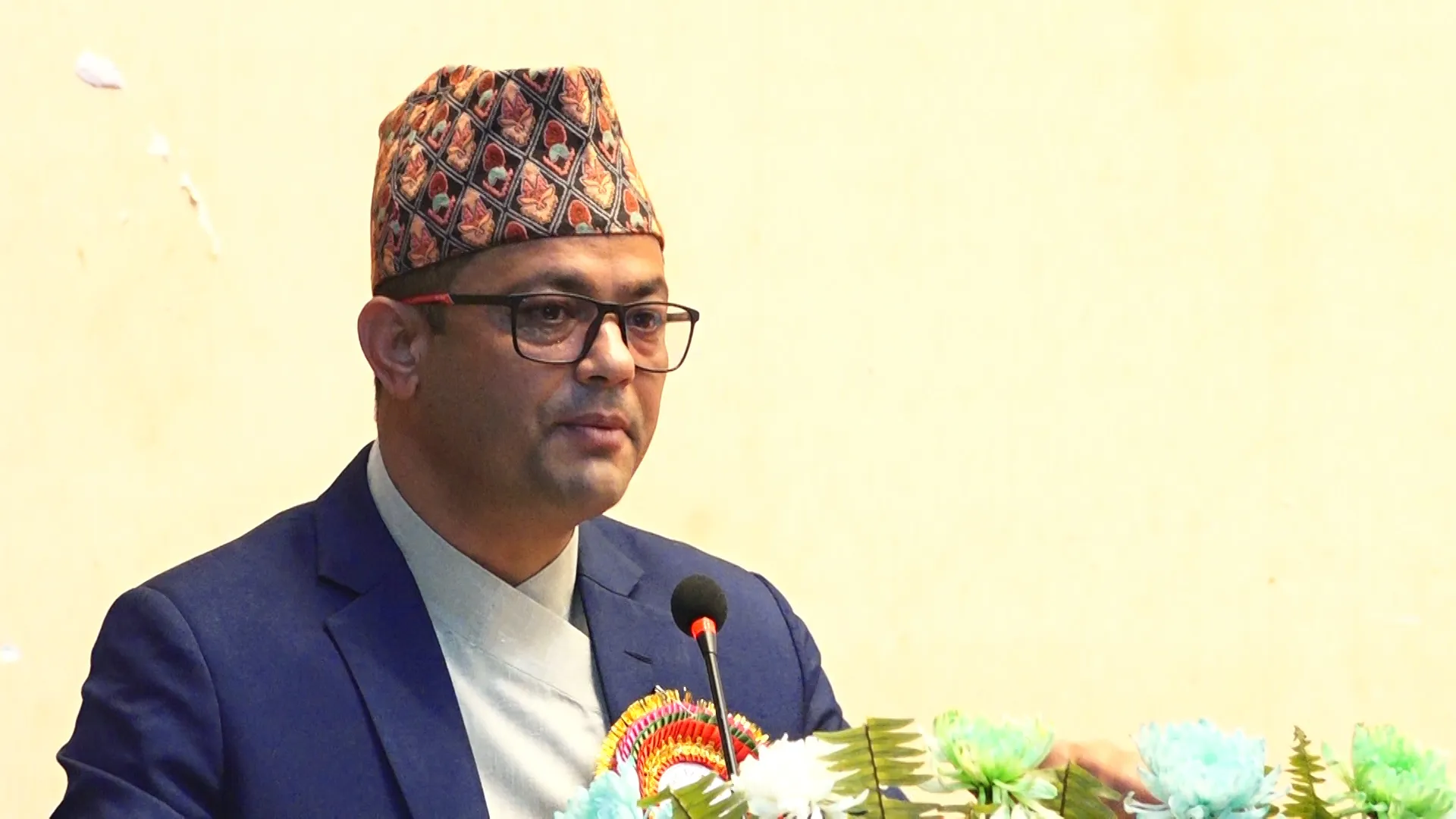
Kathmandu, May 5: In the wake of a severe financial dent to Nepali media, especially after the COVID-19, the Law Minister has underlined the need of socioeconomic security to journalists to ensure fair reporting.
“Journalists’ social security is fragile. If any journalist faces intimidation causing damage or loss in course of duty, there is none, but he/she alone to bear it. At such situation, journalists are not able to work independently and fear-free,” the Minister for Law, Justice and Parliamentary Affairs, Padam Giri, underlined.
Minister Giri made such observation while addressing a dialogue on ‘digital dynamics of press freedom: Nepali context’ organized by the Digital Media Foundation in the federal capital on Saturday. He further argued as long as the journalists face financial insecurity, they can not disseminate news in a free and fair manner. The Minister also said government would cooperate to address this problem.
The Minister also expressed worry over non-implementation of Working Journalists Act.
According to him, media has significant role to institutionalize democracy, so media too needs to be accountable. Media accountability builds public trust in media, he asserted.
On the occasion, Chairman of Press Council Nepal, Balkrishna Basnet, said dearth of media literacy has created confusion over content creators and journalists. “Those running personal YouTubes, flouting journalistic practice and code of conduct can not be termed journalists at all. Society is confused over their contents. So, time has come to sort out this issue,” he emphasized.
Chairman Basnet asserted that Press Council Nepal had made a right and timely decision on disputed video disseminated by sidhakura.com.
However, General Secretary of the Federation of Nepali Journalists, Roshan Puri, viewed the way the sidhakura.com received directions from the Council and the Supreme Court seemed intended to suppress press. The issue got hyper attention, Puri argued.
According to him, political leaders’ behaviour was responsible behind threats to journalists on digital spheres, so the political leaders and their cadres need to be accountable.
Making a presentation at the programme, Nepal representative to Reporters Without Borders, Binod Dhungel, shared that World Press Freedom Index had showed Nepal’s situation improving, but challenges continued.
The challenges to press were on rise owing to increasing digital spheres where there is spurt of information flow. Dhungel urged all sides concerned to be aware over the laws being made to make them favourable to press freedom.
Similarly, former Chairperson of Centre for Investigative Journalism, Namrata Sharma, commented Dhungel’s presentation and stressed a formation of a mechanism to sort out the digital problems as trolls on social networks against media and journalists.
Foundation’s Chairman Prabesh Subedi viewed although revolution of digital technology had created opportunities for free press, it is also lumped together with host of challenges. So, time has come to strike a balance and move ahead accordingly, he laid emphasis.
The human resources capable to understand the nature of IT is essential to make friendly IT laws surrounding press and media, Subedi insisted.





